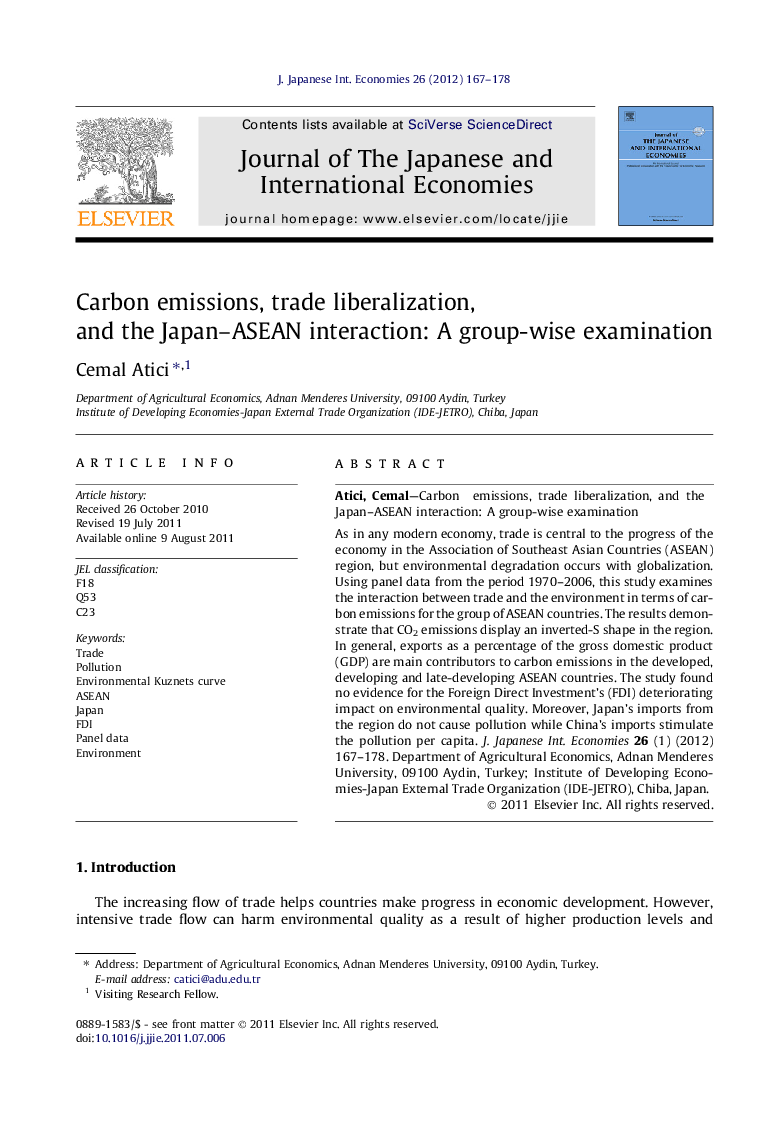| Article ID | Journal | Published Year | Pages | File Type |
|---|---|---|---|---|
| 964976 | Journal of the Japanese and International Economies | 2012 | 12 Pages |
As in any modern economy, trade is central to the progress of the economy in the Association of Southeast Asian Countries (ASEAN) region, but environmental degradation occurs with globalization. Using panel data from the period 1970–2006, this study examines the interaction between trade and the environment in terms of carbon emissions for the group of ASEAN countries. The results demonstrate that CO2 emissions display an inverted-S shape in the region. In general, exports as a percentage of the gross domestic product (GDP) are main contributors to carbon emissions in the developed, developing and late-developing ASEAN countries. The study found no evidence for the Foreign Direct Investment’s (FDI) deteriorating impact on environmental quality. Moreover, Japan’s imports from the region do not cause pollution while China’s imports stimulate the pollution per capita.
► Trade and environment interaction for the group of ASEAN countries are examined. ► The results demonstrate that CO2 emissions display an inverted-S shape. ► Exports are main contributors to carbon emissions. ► Foreign direct investment has no deteriorating impact on environmental quality. ► Japan’s imports do not cause pollution while China’s imports stimulate pollution.
